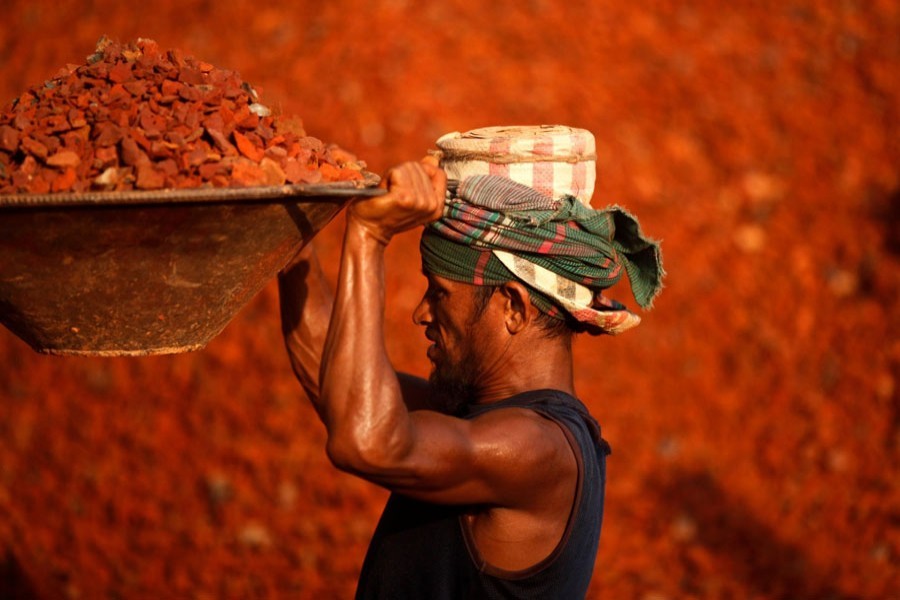It's only in the recent years that day labourers in the construction and many hazardous works in Bangladesh cities are seen being protected by modern safety gears. The scenes are fleeting, and few and far between. The general scene is appalling like that of 10-15 years ago. The perilous way these workers and day-based technicians perform their jobs still prevails in most cases. Manual workers fixing trouble in electric wires or doing welding on the exterior of the 10th floor of a building, giving coats of wall-colour, or plastering the walls of a high-rise building --- all done by them resting on pieces of bamboo tied to jute ropes, were once a normal spectacle. They still are. Be it in Dhaka or Chattogram, the workers take resort to these makeshift devices. These people are not covered by any legally approved safety umbrella. Deaths from fall are not frequent, but they do occur. But there are other circumstances filled with hazards leading to accidents -- many fatal. The recent FE photograph of a middle-aged man doing cleaning work inside a muck-filled, dark pit stands proof to the level of risks these workers take in their work. Deaths from inhaling noxious gases while cleaning Dhaka's manholes are common incidents. The persons assigning the labourers to these hazardous jobs mostly come from large government organisations.
The Bangladesh Constitution repeatedly stresses the workplace safety and the overall welfare of the labourers, who do not normally belong to rights platforms. Formal workers have trade unions. Due to being informal by definition, the rest are deprived of voicing their demands. They do not have unions. Due mainly to this drawback, they are tied to a career, which is mostly guided by the whims of the employers. Article 14 of the Constitution says that the state shall have the fundamental responsibility to protect the peasants, the toiling masses and workers from any exploitation at the workplaces. These assertions sound quite lofty. The truth is this constitutional provision is more oriented towards the formal employment sector. The informal workers remain excluded from this state support. In times of emergencies, this constitutional obligation can be greatly helpful to the formalised workers.
The International Labour Organisation (ILO) is aware of the situation in which the Bangladesh informal labourers are stuck. As has been detected by one of the surveys carried out by the UN agency, most of the informal workers in Bangladesh usually work under contractors or sub-contractors without any appointment letter. They work on a daily wage basis. The working conditions do not comply with occupational safety and health standards. If any of the workers faces death while on job, their families do not mostly receive compensations. The workers do not get the benefits of pension-cum-insurance, sick leave or bonus. To speak in a nutshell, the informal labour force globally works under an unwritten policy: No work, no pay. This country is no exception.
According to the Bangladesh Labour Force Survey, it has about 90 per cent informal workers. This working class includes farmers, domestic workers, hired labourers in myriad sectors, self-employed persons and part-time workers and the seasonal labour like harvest-time workers in rural areas. Thanks to the unremitting spate of various kinds of industry-based, and apartment building activities under private entrepreneurship, the demand for informal workers remained high all along. The workers learnt to make do with their meagre incomes. But the Covid-19 shutdown appeared to have dealt a great blow to these ever-vulnerable workers. The state has to step in to alleviate this plight of theirs.


